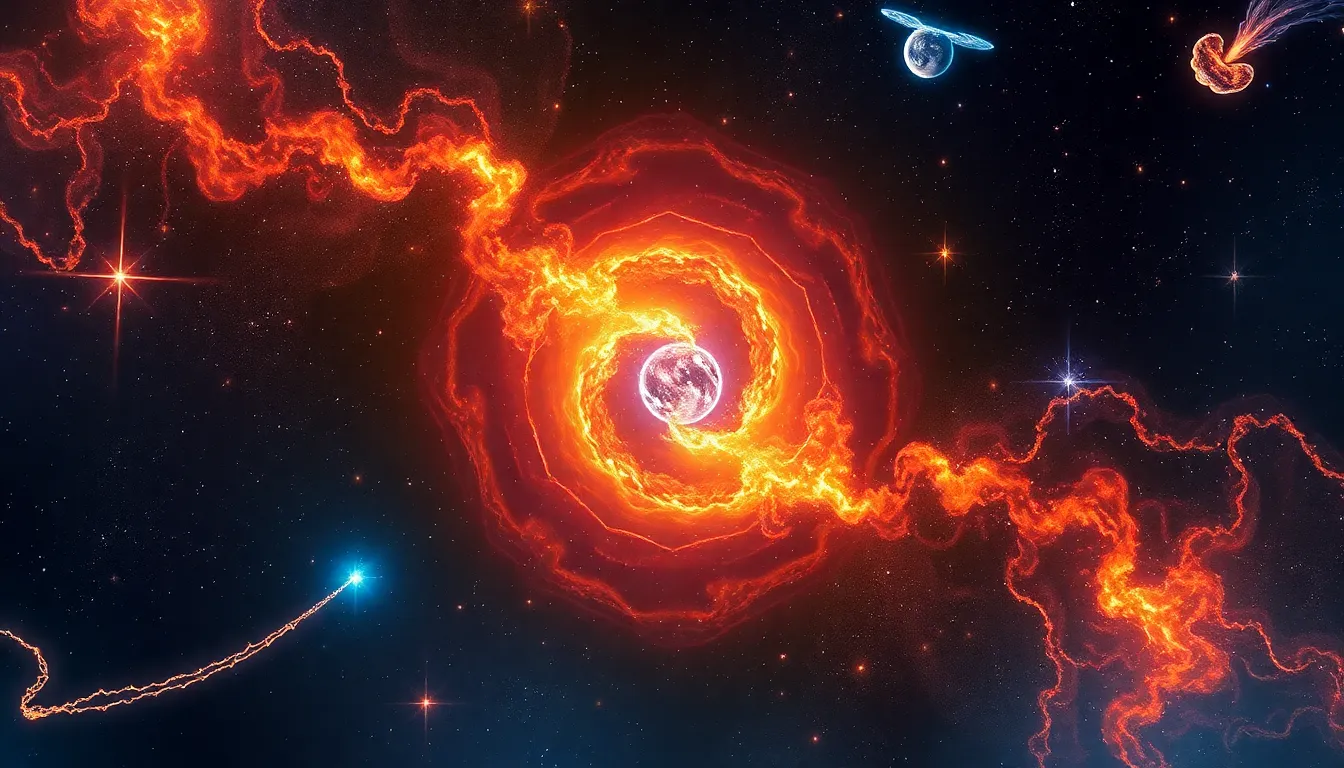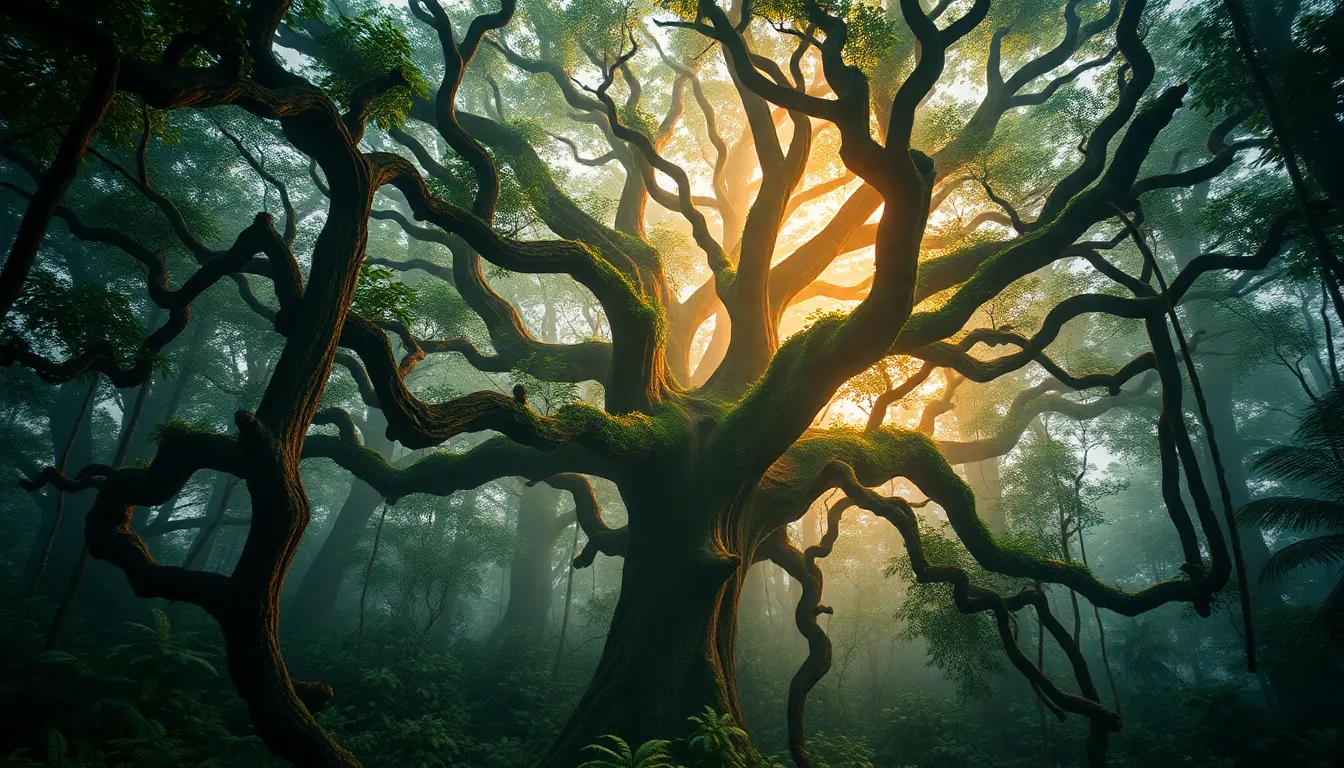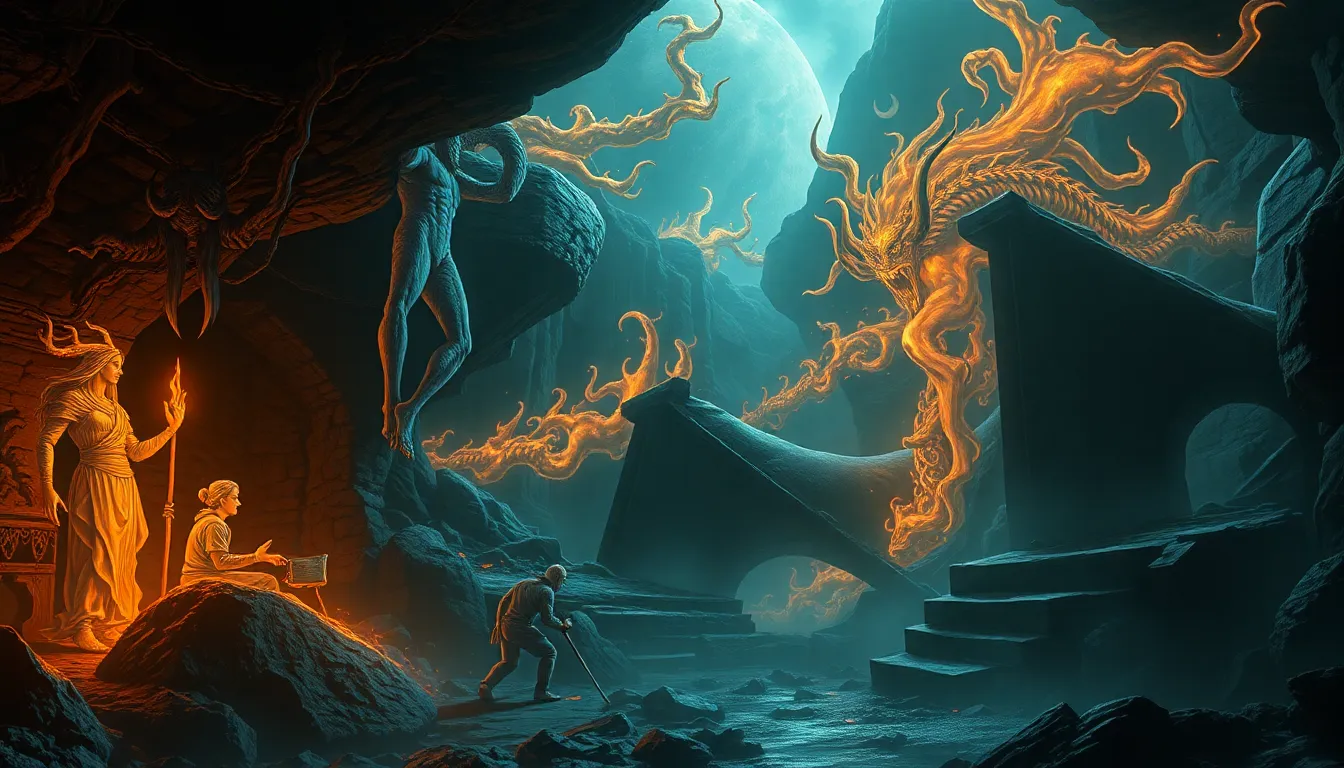The Myth of the Universe: How Creation Stories Shape Our Beliefs
Introduction: The Power of Creation Myths
Creation myths are foundational narratives that explain the origins of the universe, humanity, and life itself. These stories are not merely ancient tales; they are deeply embedded in the cultural fabric of societies around the world. This article aims to explore the significance of creation myths in shaping beliefs, values, and societal norms, highlighting their enduring impact on human culture and individual worldviews.
The Role of Creation Stories in Human Culture
Throughout history, creation myths have played a pivotal role in various civilizations, serving as a means to understand and explain the world. From the ancient Greeks to Indigenous cultures, these stories provide context for natural phenomena and human existence. They often embody the following functions:
- Providing a framework for understanding the universe
- Establishing cultural identity and continuity
- Offering moral guidance and ethical frameworks
Creation stories are not only historical artifacts but also living narratives that continue to influence contemporary societies.
Major Creation Myths from Around the World
There are numerous creation myths that span diverse cultures, each with unique themes and motifs. Some of the most notable include:
- Genesis (Judeo-Christian): The biblical account of creation describes God creating the world in six days and resting on the seventh.
- The Big Bang Theory: A scientific explanation that posits the universe originated from a singular explosion, leading to the expansion of space and time.
- Hindu Cosmology: Describes a cyclical process of creation, preservation, and destruction, with deities like Brahma, Vishnu, and Shiva playing key roles.
These myths reveal common themes such as chaos, order, and the relationship between the divine and humanity, while also reflecting the unique cultural environments from which they arise.
The Psychological Impact of Creation Myths
Creation stories significantly shape individual belief systems and worldviews. They provide frameworks for understanding existence and often help individuals find comfort in their lives. The psychological impacts include:
- Offering a sense of belonging and identity
- Providing explanations for existential questions
- Facilitating coping mechanisms in times of crisis
By engaging with these narratives, individuals can derive meaning from their experiences and navigate the complexities of life.
Creation Myths and Scientific Understanding
The relationship between religious creation stories and scientific explanations often presents tension. For instance, the theory of evolution and the Big Bang challenge traditional narratives. Many individuals find ways to reconcile these differing viewpoints, leading to a spectrum of beliefs that may include:
- Literal acceptance of religious texts
- Metaphorical interpretations of creation stories
- Integration of science and faith
This reconciliation reflects the diverse ways in which humanity seeks to understand its origins and place in the universe.
Creation Myths in Modern Society
Despite advancements in science, traditional creation narratives persist in contemporary culture. These myths manifest in various forms, including:
- Films and television shows that explore themes of creation and existence
- Literature that reinterprets ancient stories for modern audiences
- Art that reflects creation themes, such as birth and destruction
Such representations demonstrate how creation myths continue to resonate and evolve within the collective consciousness.
The Influence of Creation Stories on Ethics and Morality
Creation myths often inform moral frameworks and ethical beliefs. For instance, the Judeo-Christian story of creation emphasizes stewardship of the Earth, which has led to various environmental ethics. Case studies include:
- The impact of Indigenous creation stories on land conservation practices
- How the Genesis narrative influences debates on bioethics and human dignity
These narratives shape how communities approach ethical dilemmas, guiding behavior and decision-making.
The Evolution of Creation Myths in the Age of Information
In an age of rapid technological advancement and globalization, the transmission of creation stories has changed dramatically. New narratives are emerging to address contemporary challenges, such as:
- Climate change and environmental degradation
- The digital transformation and its impact on human relationships
- Cultural narratives surrounding artificial intelligence and biotechnology
This evolution reflects humanity’s ongoing quest to understand its place in an ever-changing world.
Interpreting Creation Myths: A Personal Journey
As readers engage with creation myths, it is essential to reflect on personal beliefs and the narratives that resonate with them. Each individual’s interpretation can vary widely, shaped by cultural background, personal experiences, and societal influences. This personal journey encourages:
- Exploration of one’s own creation story
- Understanding how these myths influence personal beliefs and values
- Engaging in dialogue with others about their interpretations
Such reflections deepen our understanding of how creation myths shape our perspectives on life and existence.
Conclusion: The Ongoing Relevance of Creation Myths
In summary, creation myths hold a profound significance in shaping human beliefs, values, and understanding of the universe. They serve as lenses through which individuals and cultures interpret their existence and the world around them. As we navigate the complexities of modern life, these narratives continue to offer insights, comfort, and moral guidance. The exploration of creation stories remains relevant, reminding us of our shared humanity and the enduring quest for meaning.



